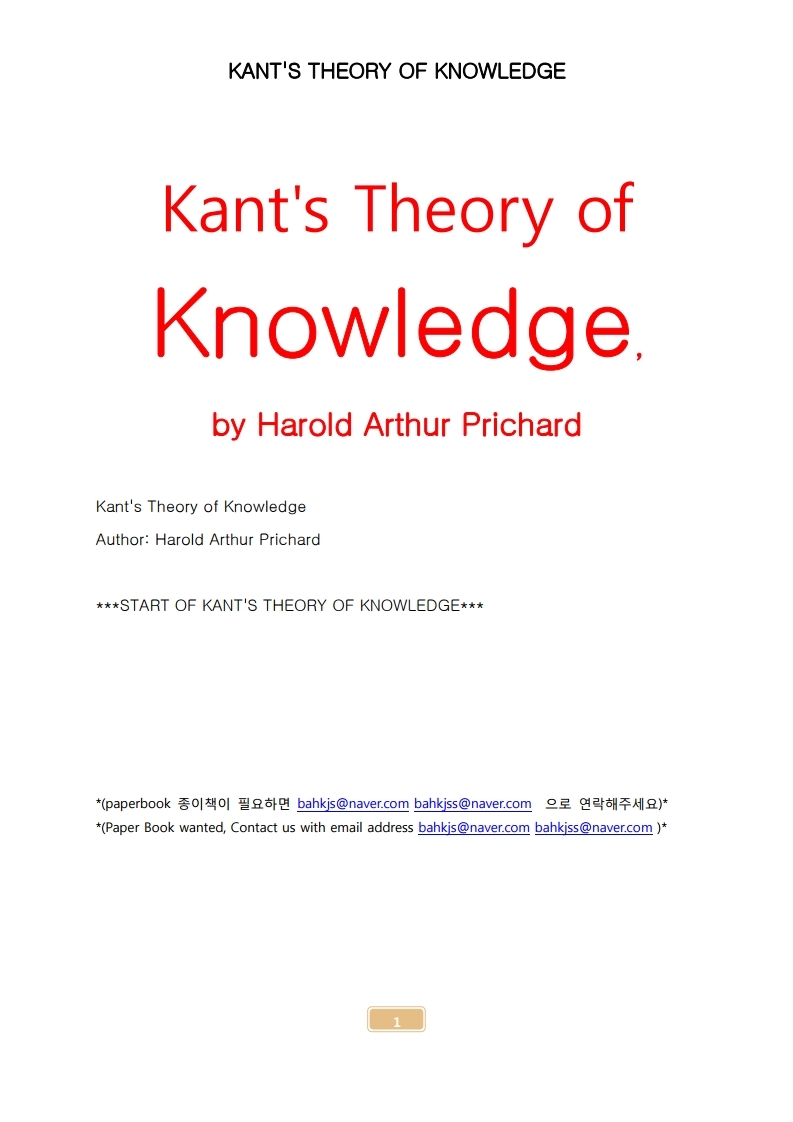인문 > 서양철학
책서언. 칸트의 책인 삼대비판등을 분석해서 지식에대해서 칸트이론을 씀.
PREFACE
This book is an attempt to think out the nature and tenability of Kant's
Transcendental Idealism, an attempt animated by the conviction that even the
elucidation of Kant's meaning, apart from any criticism, is impossible without a
discussion on their own merits of the main issues which he raises.
My obligations are many and great: to Caird's Critical Philosophy of Kant and to
the translations of Meiklejohn, Max M?ller, and Professor Mahaffy; to Mr. J. A.
Smith, Fellow of Balliol College, and to Mr. H. W. B. Joseph, Fellow of New
College, for what I have learned from them in discussion; to Mr. A. J. Jenkinson,
Fellow of Brasenose College, for reading and commenting on the first half of
the MS.; to Mr. H. H. Joachim, Fellow of Merton College, for making many
important suggestions, especially with regard to matters of translation; to Mr.
Joseph, for reading the whole of the proofs and for making many valuable
corrections; and, above all, to my wife for constant and unfailing help
throughout, and to Professor Cook Wilson, to have been whose pupil I count
the greatest of philosophical good fortunes. Some years ago it was my privilege
to be a member of a class with which Professor Cook Wilson read a portion of
Kant's Critique of Pure Reason, and subsequently I have had the advantage of
discussing with him several of the more important passages. I am especially [Pg
iv] indebted to him in my discussion of the following topics: the distinction
between the Sensibility and the Understanding (pp. 27-31, 146-9, 162-6), the
term 'form of perception' (pp. 37, 40, 133 fin.-135), the Metaphysical
Exposition of Space (pp. 41-8), Inner Sense (Ch. V, and pp. 138-9), the
Metaphysical Deduction of the Categories (pp. 149-53), Kant's account of 'the
reference of representations to an object' (pp. 178-86), an implication of
perspective (p. 90), the impossibility of a 'theory' of knowledge (p. 245), and
the points considered, pp. 200 med.-202 med., 214 med.-215 med., and 218.
The views expressed in the pages referred to originated from Professor Cook
Wilson, though it must not be assumed that he would accept them in the form
in which they are there stated.





